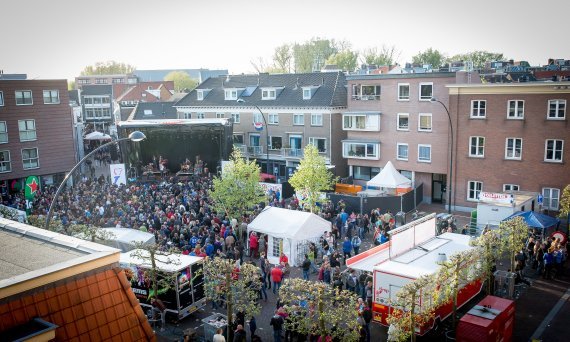Liberation Day in Wageningen last year (Photo: Sven Menschel)
On 5 May 1945, the Netherlands was liberated from occupation by Nazi Germany. Ever since, the country celebrates its freedom and pays attention to present-day human rights abuses around the world every year on that day – Liberation Day. This is preceded by memorial ceremonies on the evening of 4 May, in which the Dutch remember their fallen during World War II as well as later wars and peace missions.
Ceremonies
These ceremonies take place in many cities, including Wageningen, but the biggest is the National Commemoration on Dam Square in Amsterdam, attended by King Willem-Alexander and Queen Máxima. This ceremony is open to the public and is broadcast live on television from 18:45. On the Grebbeberg, a hill in Rhenen near Wageningen where battles were fought and a war cemetery is located, a big memorial service is held between 19:00 and 21:00.
At 20:00 on 4 May, two minutes’ silence is observed throughout the Netherlands. Trains and buses stop, car drivers look for a carpark, sports matches are interrupted and (most) children sit silently in front of the television with their parents.
The next day, Liberation Day, is an official holiday and many people have a day off. There are liberation festivals in 14 cities, and Wageningen is among them. Wageningen is an important location on this day, because the capitulation treaty was signed here in Hotel De Wereld.
Practical tips
Liberation Day is the busiest day of the year in Wageningen, with about 120,000 visitors. The city centre is completely closed to traffic, so come by bus, bike or on foot. There are guarded bicycle parking places. Admission to the festival itself is free, but your bag may be checked at the entrance: no glass, tins or plastic bottles are allowed. Do count on long queues – and that goes for the toilets as well.

